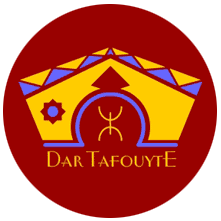Moroccan cuisine is a delightful fusion of flavors, colors, and textures that has evolved over centuries. Influenced by Berber, Arab, Andalusian, and Mediterranean cuisines, Moroccan dishes are a testament to the country’s rich history and diverse culture. But while many are familiar with the bustling markets of Marrakech or the coastal delicacies of Casablanca, few have ventured deep into the heart of the Sahara to savor the authentic flavors that this desert region has to offer.
Moroccan Cuisine: A Journey Through Authentic Flavors & Traditions
The Sahara’s Culinary Landscape
The Sahara, the world’s largest hot desert, stretches across North Africa, covering parts of Morocco. Life in the Sahara is shaped by its harsh climate, and this is reflected in its culinary traditions. With limited resources, the nomadic tribes of the Sahara have mastered the art of creating flavorful dishes using simple, locally-sourced ingredients.
Signature Dishes of the Sahara
- Tagine: While tagine is popular throughout Morocco, the Saharan version is unique. Slow-cooked in a conical clay pot, Saharan tagine often features camel meat, seasoned with a blend of spices, dried fruits, and nuts. The slow cooking process allows the flavors to meld beautifully, resulting in a rich and hearty dish.
- Medfouna: Often referred to as the “Saharan pizza”, medfouna is a stuffed bread filled with a mixture of meat (usually lamb or beef), onions, spices, and herbs. It’s baked in a sand oven, giving it a distinct flavor and texture.
- Khobz: This is a traditional flatbread that is a staple in Saharan meals. It’s often used as a utensil to scoop up food and soak up the delicious sauces from dishes like tagine.
- Dates and Almonds: As oasis fruits, dates are abundant in the Sahara. They’re often served as a sweet treat, stuffed with almonds or enjoyed with a cup of mint tea.
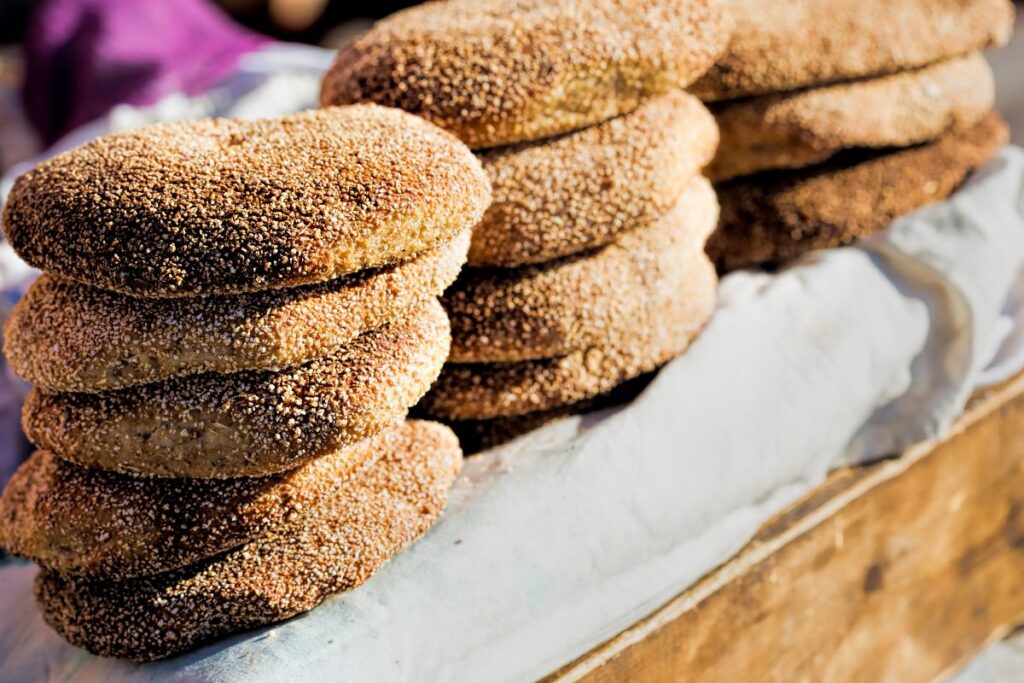
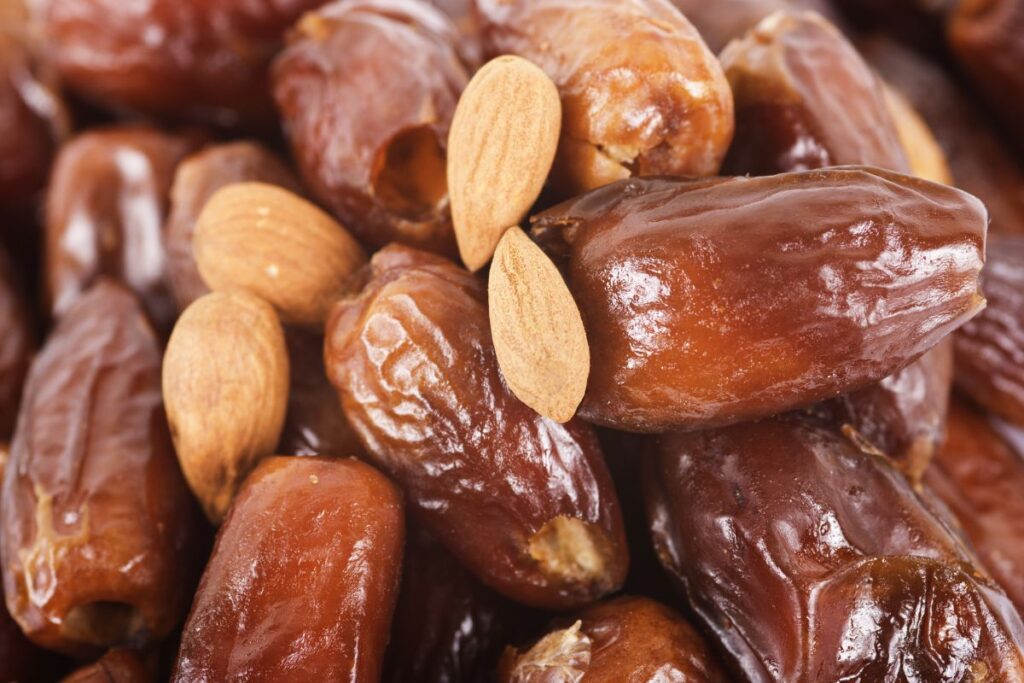
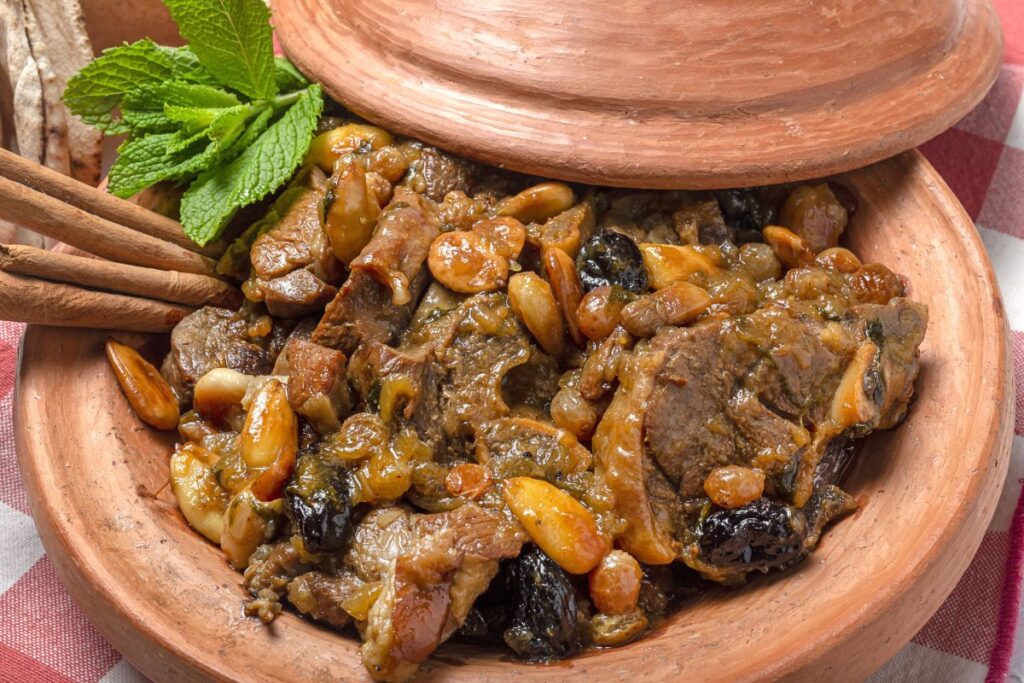
The Role of Spices
Spices play a pivotal role in Saharan cuisine. Saffron, cumin, coriander, and cinnamon are just a few of the spices that are used to infuse dishes with depth and complexity. These spices not only enhance the flavor of the food but also have medicinal properties, helping to combat the challenges of desert living.
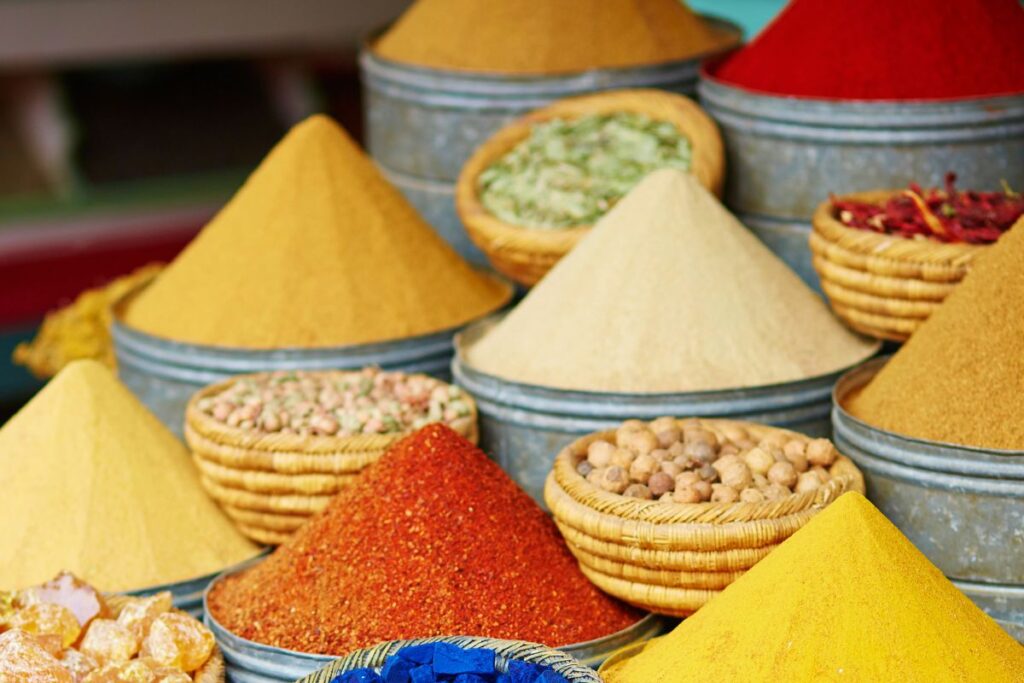
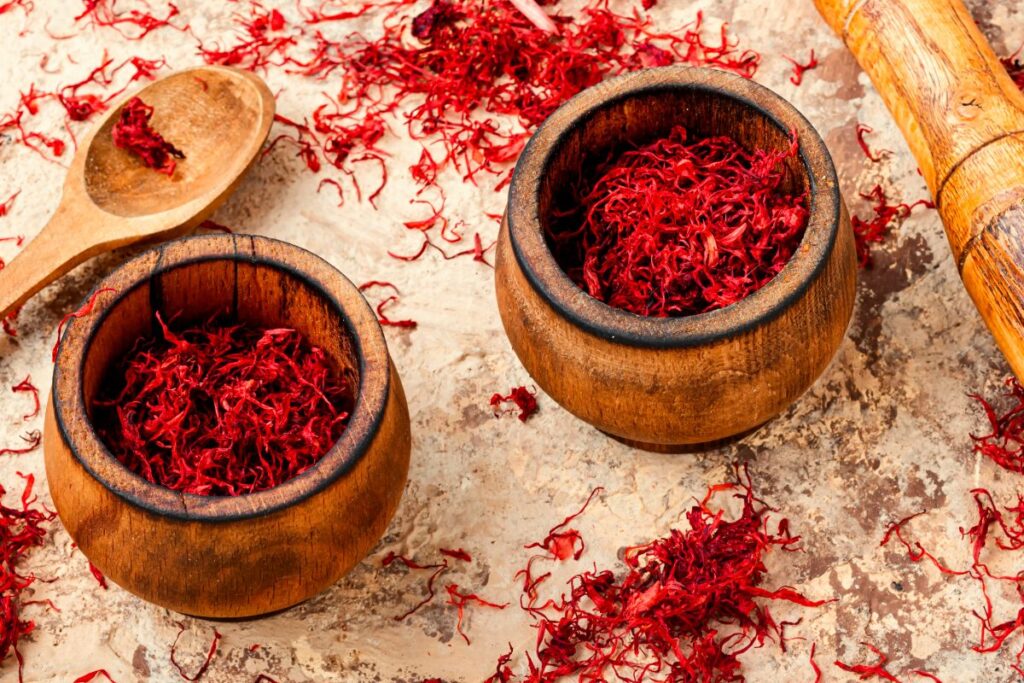
A Culinary Journey Worth Taking
Dining in the Sahara is not just about the food; it’s an experience. Imagine sitting under a canopy of stars, with the golden sands stretching endlessly before you, enjoying a meal that has been prepared using age-old techniques. The rhythmic beats of Berber music in the background, the warmth of the fire, and the aroma of spices in the air make it a sensory feast.
Moroccan cuisine in the Sahara offers a unique and unforgettable gastronomic adventure. It’s a testament to the resilience and creativity of the Saharan people, who have managed to craft delectable dishes in one of the world’s most challenging environments. So, the next time you find yourself in Morocco, venture beyond the cities and into the heart of the Sahara. The authentic flavors await you.
